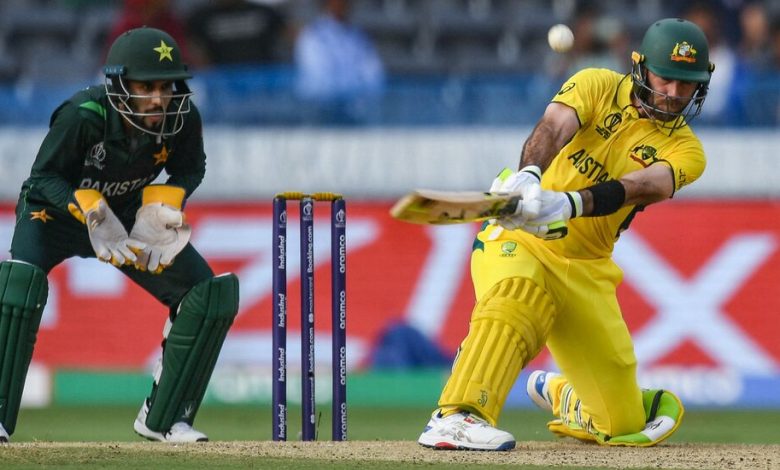How to Become a Cricket Expert Just in Time for the Cricket World Cup

Every four years, the world’s top cricket teams come together to determine which of them is the best of all at the Cricket World Cup.
While the event enraptures lovers of the game from Durham, England, to Durban, South Africa, it barely hits the radar of sports fans in many other lands. That’s a shame! Here’s what to know about this year’s event, whether you’re an aficionado or a skeptic.
When and where is the Cricket World Cup?
The games start on Thursday and will be played in 10 locations around India. After a five-week group stage, with each of the 10 teams playing nine games, the semifinals will be played on Nov. 15 and 16, and the final will be on Nov. 19 in the Narendra Modi Stadium in Ahmedabad.
OK, back up a little.
Beginners should know that there are three major types of cricket. The longest format games, which at the top level are known as Test matches, last as long as five days each (yes, you read that right).
The shortest format, and the one that has been booming in popularity, is Twenty20, in which games are played in a single day, lasting about three hours.
The World Cup is played in an intermediate category with matches taking just one day, but going for roughly seven to eight hours each.
Which teams are favored to win it all?
The host country, India, is the favorite, and close behind is the defending champion, England, as well as Australia, which has five World Cup wins; no other nation has more than two. Pakistan is also a contender, as is South Africa, despite a decades-long reputation for falling short in big tournaments.
What are the key games?
Only the top four teams of the 10 in the tournament will advance, so there’s little margin for error; an early couple of losses could threaten to knock out a team. With each team playing every other one, all the big rivalries will be renewed, notably India-Pakistan (Oct. 14) and England-Australia (Nov. 4).
There must be some stars playing.
Absolutely. The top-rated batter in the world in this form of cricket is Babar Azam, of Pakistan, who has carried his country for years and averages a gaudy 58 runs per game in major one-day cricket matches. But all eyes in India will be on Virat Kohli, 34, an astonishing run-scorer.
As for bowlers, a couple of veteran lefties, Trent Boult, of New Zealand, and Mitchell Starc, of Australia, are expected to get more than their share of batters out.
Ben Stokes, of England, is an all-rounder, a player who both bats and bowls well. He had retired from this format of cricket but is coming back for the World Cup. He is the inventor of a type of play in Test matches known as Bazball, where the batsmen play in a daring, high-risk style to amass many runs quickly.
Will the games be exciting?
Well, you never know for sure. But the final of the most recent World Cup in 2019, a nail-bitingly close victory for England over New Zealand, was called by some the greatest game ever played. And those two teams will meet again in the tournament opener on Thursday.
How can I watch?
In the countries where the World Cup is the biggest deal, major broadcasters signed on to broadcast the tournament. Among them are Sky Sports in Britain, Fox in Australia, SuperSport in South Africa and Star Sports in India. In the United States, ESPN+ will stream all the games, which will also be shown on the cricket channel Willow TV.
Is there a World Cup for women?
Yes, it was introduced in 1973, two years before the men’s version. Eleven of the 12 titles have been won by Australia and England. The next event is in 2025 in India.
OK, I know baseball, but can you explain cricket quickly?
It’s difficult, but I’ll try.
With the caveat that there are some oversimplifications, here is the gist:
The cricket field is a large circle, and the fielding team spreads out around it. Two batsmen at the center of the circle take turns trying to hit balls from the fielding team’s bowlers.
When a batsman does hit the ball, he and his fellow batsman may elect to run between two low posts, called wickets. Each time they do, they get a run. If a batsman hits the ball out of the circle on the bounce, it’s four runs. On the fly, it is six runs.
One stark difference from baseball is that the bowler takes a running start and, most of the time, bounces the ball to the batsman. Another is that the batsmen may hit the ball in any direction, even backward; there is no foul territory.
The batsmen can be put out in a number of ways, including having a ball they hit caught on the fly, or having the ball from the bowler knock over the wicket.
In this format of the game, a batting team is finished when 10 of its 11 batsmen are out, or if it faces 300 balls, whichever comes first. By then, the team will most likely have scored at least 200 runs, and often 300 or more.
Then after a break, the other team bats and tries to top the first team’s score.
You’ve convinced me that cricket is a fun sport. But can it be more than that?
Take it from the Trinidadian Marxist thinker C.L.R. James, who said in his 1963 cricket memoir “Beyond a Boundary”: “Cricket is first and foremost a dramatic spectacle. It belongs with theater, ballet, opera and the dance.”
Over the next six weeks, if a match is close, a fast bowler is charging toward a star batter and the crowd is on its feet, for a lot of fans, the game will rise to art indeed.
